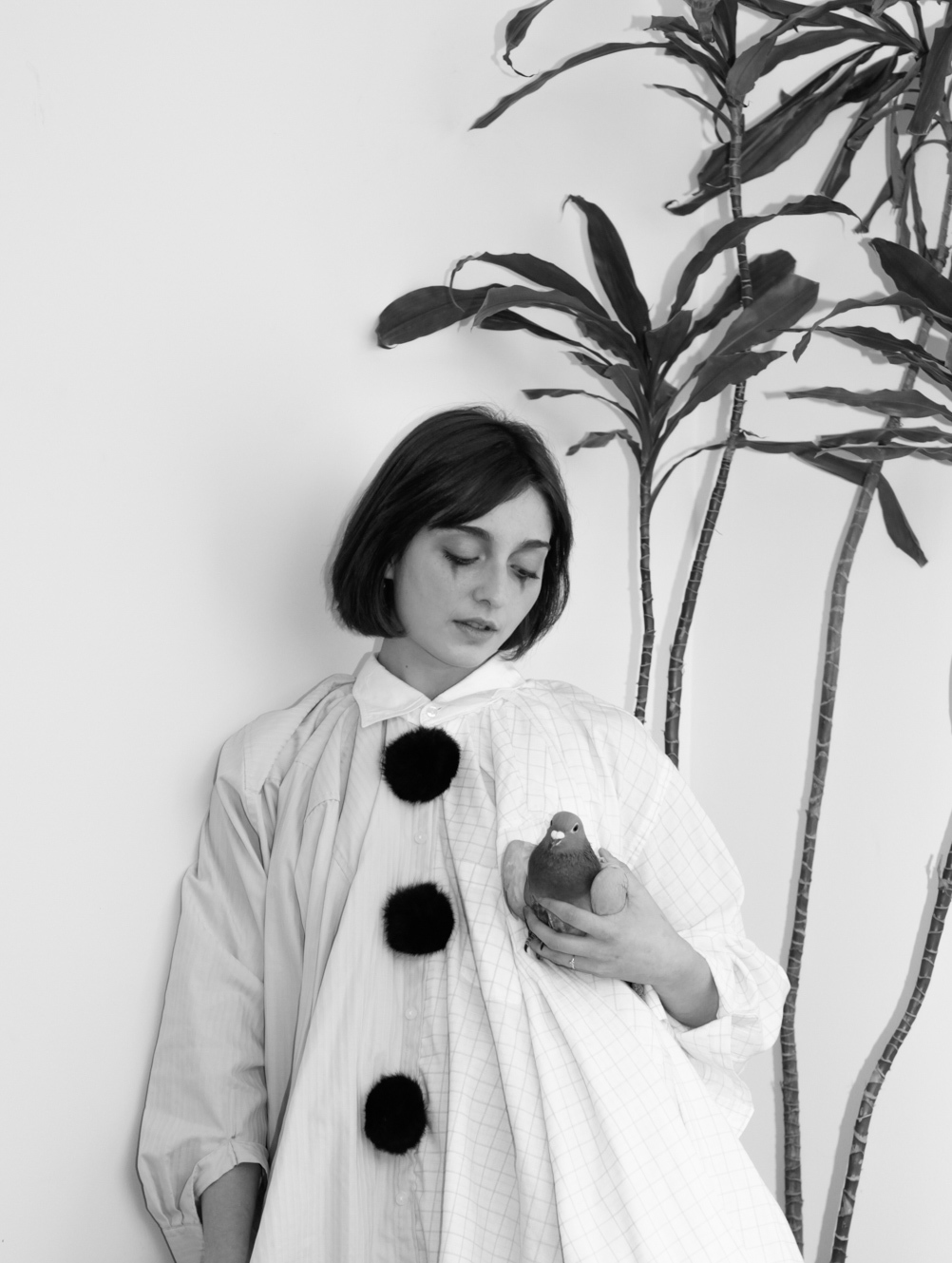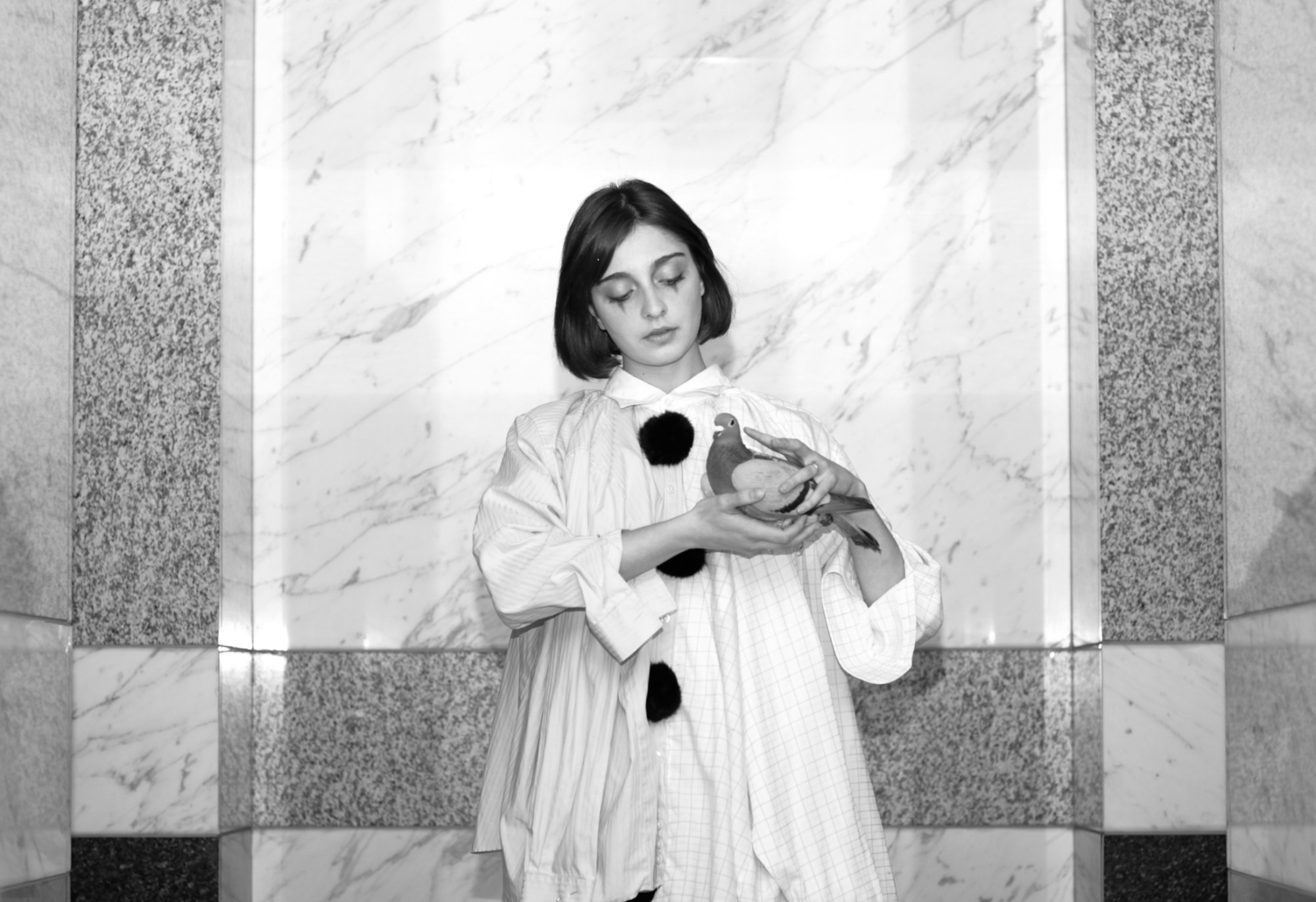I can’t remember when I first realized Amalia’s Instagram account had become the home of a piece of meticulously scripted performance art, when I realized it was no longer Amalia in the pictures, but “Amalia.”
Amalia had recently moved from London, where she’d graduated from Central Saint Martins, to Los Angeles, and I thought, well that’s what Los Angeles does to people, isn’t it? Turns everyone into selfie obsessed narcissists, posting pictures of latte art, banal motivational slogans, and videos of themselves dancing sexily to Iggy Azalea. I think I’d definitely realized around the time Amalia went to hospital to “have” breast enlargement surgery.
Excellences and Perfections, the title of that performance, was conducted on Instagram for five months in mid-2014. In it “Amalia” moves to LA, gets a boyfriend, has plastic surgery, has a breakdown, gets better. The end. Amalia’s got a Flaubertian eye for finding beauty in banal detail, uncovering the romantic idealism that springs from such banality, and picking apart the fall out when the romantic bubble gets popped. Excellences And Perfections might be satire, but it’s hard to say just where the blow falls. It takes aim as much at the performance the character undertakes as it does the viewer-voyeur who can’t tear their eyes away from the unfolding spectacle. There’s a honed vacuity to the images that implicates us all.
“I was fascinated by the moodboards these kind of girls curated online, and the way they’d write as a sort of accessory.” Amalia explains, when asked about how she came to start Excellences and Perfections. “The original idea was to use that same strategy and apply it to a fictional scripted narrative, but I wanted to use the language of the internet to make the audience feel uncomfortable when confronted with their own desires, guilty pleasures and prejudices. How would an art audience react to a character they are entertained by, but supposedly meant to critique and condemn?”
Excellences and Perfections is on display at the moment in two very different exhibitions: one, at the Whitechapel, is an overview of the last fifty years of digital art, it places Amalia alongside contemporaries like Petra Cortright and Katja Novitskova as experimenting with new technology to see what territories art can find itself inhabiting. The Tate exhibition, instead, places it within a line of artists like Cindy Sherman, Hannah Wilke, and Francesca Woodman, who mixed photography, portraiture, and performance. The lasting power isn’t so much in the images themselves, or even the story that it tells, but in the reactions the performance generated, and continue to generate.
“Some reactions were unexpected, like women asking for advice about surgeons and not suggesting me to think twice about the surgery. Other reactions took place as I had planned, like slut shaming, trolling, and a strong feeling of disappointment by people who wanted to believe the story was real… The same deception a client suffers when their favorite prostitute reveals she’s actually not in love.”
Excellences and Perfections seemed to touch a nerve, it’s take on that feminized Instagram culture opened her up to criticism of the is it even art? variety from outside the art world, and a sort of sneering low-browness from members of the art world, who believe she actually is the character from the performance, or who can’t see the performance piece as a piece of work, but mere Instagram Art. “People don’t tend to question what they’ve seen,” she explains, “All photographs are true because we want them to be.” The fact that their was no vindictive, nasty streak, to Excellences and Perfections, and that its humor was so deadpan, means it’s hard to pull apart the realness of the reality Amalia created.
“We are all characters in a play but no one wants to think about it or find themselves as a caricature or a walking cliché. It’s the same discomfort anyone experiences when a friend imitates them perfectly well, realizing how obvious their signifiers are.”

Since Excellences and Perfections, Amalia has taken on wildly different forms in order to express a similar unease with the surfaces, aesthetics, and power relationships of modern life. Stock Images of War, exhibited in New York, featured work made during her recovery from a life-threatening and leg breaking bus accident, and, in a series of metal wire sculptures, turned the instruments of war into delicate and precarious objects that mirrored the fragility of her situation. Then International House Of Cozy, made for Rotterdam’s MAMA, pulled apart the various signifiers of hipster life via a short pornographic film. Set to light strummed muzak, a couple talk about their life, Soho house, Aesop moisturizer, their art careers. It’s a rather twisted and humorous take on the truism that “sex sells” and the rather horrific use of “porn” as a signifier: lifestyle porn, interior porn, food porn, etc. “I like porn as this big chunk of pop culture everyone looks at and no one really talks about,” Amalia says. “It’s a big blanket that covers the world like the Ozone layer.” At the film’s climax the actor cums on a Muji notebook.
“I want to be ‘figuring things out’ till I die,” she explains of her diverse style and forms. “Some ideas will work, some won’t. I guess I have no sense of ridicule, which protects me from overthinking.” The thread that runs through much of her work, that makes its approach so singularly satisfying, is the way she uses narrative to explore modern life.
Part of this, as she says, is to explore the use of cliche. We’re all meant to be building our personal brands now, rewriting our lives to make ourselves look perfect, broadcasting our perfect jobs, hobbies, friends, dinners, coffees, we’re all characters in a play, just Amalia’s work often reveals we’re simply caricatures. Alternatively, it’s a kind of hypocrisy, another kind of cliche, in the way society is structured: the simple dichotomies between powerful and powerless, female and male.
“I’m fascinated by con artists (at my core, I guess I’m Argentinian!) and by how people pass for others, through performance, poise, clothes etc. The same way as when people get surgery, look prettier or younger, and they are treated better because they have a sweeter look.”
At Frieze she unveiled a new video installation with Arcadia Missa based around the history of diary keeping and unwritten female histories, as well as a holiday she took to North Korea, to enter the booth you had to remove your shoes and hand over your phone. The film used cutesy aesthetics and stereotypically girly language as a way of discussing larger issues around media representation, often using that cute tone-of-voice to slip in forceful, powerful statements. “You can only escape that manipulation, political and personal, by recognizing the language.” She explains. “Most of the script was made from from emails men have sent to me in the past.”
Credits
Text Felix Petty
Photography Renata Raksha
